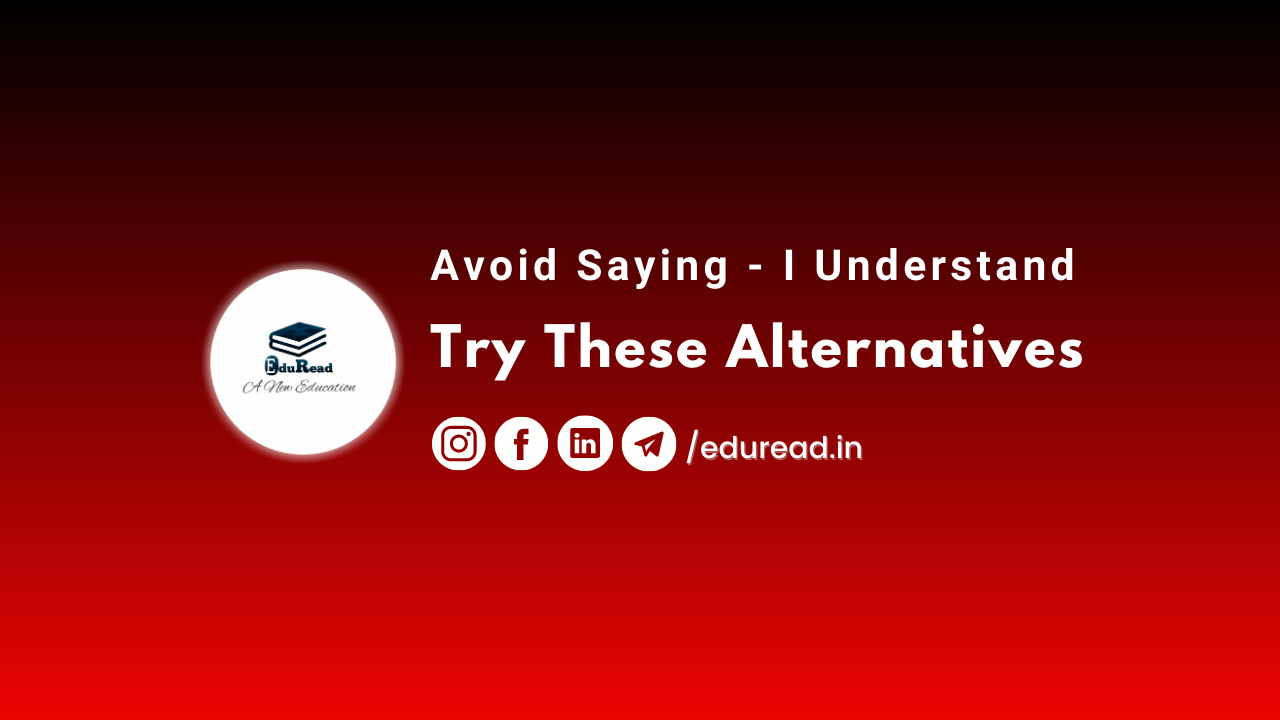As humans, we tend to use the phrase “I understand” frequently in conversations. However, sometimes this phrase can be misinterpreted, and it may not accurately reflect what we truly mean. In this blog post, we’ll discuss some alternatives to “I understand” that can help you communicate more effectively and avoid misunderstandings.
The Problem with “I Understand”
“I understand” is a common phrase we use to convey that we comprehend what the other person is saying. However, sometimes, it can be perceived as dismissive or even insincere. When we say “I understand,” we are not necessarily communicating that we agree or empathize with the person. In fact, we may not fully comprehend what they are saying. Using “I understand” as a default response can hinder communication and cause misunderstandings.
Alternatives to “I Understand”
- “I see what you mean”
This phrase acknowledges that you comprehend the other person’s message and that you are actively listening to what they are saying. It also implies that you are trying to empathize with their perspective.
- “I can appreciate where you’re coming from”
This alternative conveys that you understand the other person’s position, even if you don’t necessarily agree with it. It acknowledges that their perspective is valid and worthy of consideration.
- “That makes sense”
This phrase suggests that you comprehend the logic behind the other person’s message. It indicates that you can follow their reasoning and that their point is valid.
- “I can relate to that”
This alternative implies that you have had similar experiences or feelings to the other person. It shows that you understand their perspective on a deeper level.
- “I hear you”
This phrase is a simple way to acknowledge that you are listening to what the other person is saying. It conveys that you are actively engaged in the conversation and that their message is important to you.
When to Use These Alternatives
It’s essential to use these alternatives in appropriate contexts. For example, if the other person is expressing frustration or anger, saying “I see what you mean” may not be the best option. Instead, try using “I hear you” or “That sounds challenging.” These alternatives show that you acknowledge their emotions and are trying to empathize with their situation.
Similarly, if the other person is sharing a personal story, saying “I can relate to that” may be more appropriate than “I see what you mean.” This alternative conveys that you understand their experience on a personal level and can help build rapport.
Conclusion
Using “I understand” can be a reflexive response that we use without much thought. However, it’s essential to be mindful of our language choices and how they may impact communication. By using these alternatives, we can communicate more effectively, show empathy, and avoid misunderstandings. So the next time you’re in a conversation, try using one of these alternatives instead of defaulting to “I understand.”
Follow Us for more such content to improve your speaking skills:
To know more, check out here: https://eduread.in/avoid-saying-wait-try-these-3-short-english-phrases-speak-new-york/
And visit us for more.
